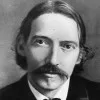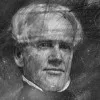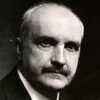Arguments are like fire-arms, which a man may keep at home but should not carry about with him.
Samuel Butler (1835-1902) English novelist, satirist, scholar
Note-books, ch. 10 “The Position of a Homo Unius Libri,” “The Art of Propagating Opinion” [ed. Jones (1912)]
(Source)
Quotations about:
dispute
Note not all quotations have been tagged, so Search may find additional quotes on this topic.
Although we have already spoken in the First Part touching the utility of the definition of terms, it is nevertheless so important, that we cannot have it too much impressed on our minds, since we may by it clear up a number of disputes, which have as their subject often only the ambiguity of terms, which one takes in one sense, and another in another. So that some of the greatest controversies would cease in a moment, if one or the other of the disputants took care to make out precisely, and in a few words, what he understands by the terms which are the subject of dispute.
Antoine Arnauld (1612-1694) French theologian, philosopher, mathematician
Logic, or the Art of Thinking [La Logique ou l’art de penser; The Port-Royal Logic], Part 4, ch. 4 (1662) [with Pierre Nicole] [tr. Baynes (1850)]
(Source)
Alternate translation:Although we have already spoken in Part I about the usefulness of defining one's terms, this is, however, so important that we cannot bear it too much in mind, since this is how countless disputes are cleared up whose cause is often merely an ambiguity in terms that one person takes one way and another person another way. Accordingly, some very serious arguments would cease in an instant if either of the disputants took the care to indicate clearly, in a few words, the meanings of the terms that are the subject of dispute.
[tr. Buroker (1996)]
Maturity begins when we’re content to feel we’re right about something without feeling the necessity to prove someone else wrong.
Sydney J. Harris (1917-1986) Anglo-American columnist, journalist, author
(Attributed)
Frequently attributed to Harris, but the original source has not been found. Earliest citation I could find was in Reader's Digest (1973), where it is further credited to the Publishers-Hall Syndicate.
When blithe to argument I come,
Though armed with facts, and merry,
May Providence protect me from
The fool as adversary,
Whose mind to him a kingdom is
Where reason lacks dominion,
Who calls conviction prejudice
And prejudice opinion.Phyllis McGinley (1905-1978) American author, poet
“Moody Reflections,” The New Yorker (13 Feb 1954)
(Source)
Our disputants put me in mind of the scuttle-fish, that when he is unable to extricate himself, blackens all the water about him, till he becomes invisible.
Joseph Addison (1672-1719) English essayist, poet, statesman
The Spectator, #476 (5 Sep 1712)
(Source)
If you are threatened or offended by people disagreeing, challenging or even ridiculing your faith, your faith can’t be that strong.
If a couple could see themselves twenty years later they might not recognize their love, but they would recognize their argument.
James Richardson (b. 1950) American poet
Vectors: Aphorisms and Ten-Second Essays, # 20 (2001)
(Source)
Of all the animosities which have existed among mankind, those which are caused by a difference of sentiments in religion appear to be the most inveterate and distressing, and ought to be deprecated. I was in hopes that the enlightened and liberal policy, which has marked the present age, would at least have reconciled Christians of every denomination so far that we should never again see the religious disputes carried to such a pitch as to endanger the peace of society.
This is the character of truth: it is of all time, it is for all men, it has only to show itself to be recognized, and one cannot argue against it. A long dispute means that both parties are wrong.
Voltaire (1694-1778) French writer [pseud. of Francois-Marie Arouet]
Philosophical Dictionary, “Sect” (1764) [tr. Gay (1962)]
(Source)
It would be almost unbelievable, if history did not record the tragic fact that men have gone to war and cut each other’s throat because they could not agree as to what was to become of them after their throats were cut. Many sins have been committed in the name of religion. Alas! the spirit of proscription is never kind. It is the unhappy quality of religious disputes that they are always bitter. For some reason, too deep to fathom, men contend more furiously over the road to heaven, which they cannot see, than over their visible walks on earth.
In disputes upon moral or scientific points, ever let your aim be to come at truth, not to conquer your opponent: so you never shall be at a loss in losing the argument, and gaining a new discovery.
James Burgh (1714-1775) British politician and writer
The Dignity of Human Nature, Sec. 5 “Miscellaneous Thoughts on Prudence in Conversation” (1754)
(Source)
An eagerness and zeal for dispute on every subject, and with every one, shows great self-sufficiency, that never-failing sign of great self-ignorance.
What Tully said of war may be applied to disputing: “It should be always so managed as to remember that the only true end of it is peace.” But generally true disputants are like true sportsmen, — their whole delight is in the pursuit; and the disputant no more cares for the truth than the sportsman for the hare.
An association of men who will not quarrel with one another is a thing which never yet existed, from the greatest confederacy of nations down to a town meeting or a vestry.
Thomas Jefferson (1743-1826) American political philosopher, polymath, statesman, US President (1801-09)
Letter (1798-06-04) to John Taylor
(Source)
Never argue with a fool; onlookers may not be able to tell the difference.
Mark Twain (1835-1910) American writer [pseud. of Samuel Clemens]
(Spurious)
Frequently attributed to Twain and also to Immanuel Kant (but never, in either case, with any citation). The phrase first makes recognizable (if anonymous) appearance in the late 19th Century; attributions to Twain begin in the late 1990s. See also Proverbs 26:4. For more discussion (and a shout-out to WIST) see here.
Most Mens Anger about Religion is as if two Men should quarrel for a Lady they neither of them care for.
George Savile, Marquis of Halifax (1633-1695) English politician and essayist
“Religion,” Political, Moral, and Miscellaneous Thoughts and Reflections (1750)
(Source)
On the dogmas of religion as distinguished from moral principles, all mankind, from the beginning of the world to this day, have been quarrelling, fighting, burning and torturing one another, for abstractions unintelligible to themselves and to all others, and absolutely beyond the comprehension of the human mind. Were I to enter on that arena, I should only add an unit to the number of Bedlamites.
Thomas Jefferson (1743-1826) American political philosopher, polymath, statesman, US President (1801-09)
Letter (1816-11-11) to Matthew Carey
(Source)
Mistakenly identified in some sources as Archibald Carey.
Do not think of knocking out another person’s brains because he differs in opinion from you. It would be as rational to knock yourself on the head because you differ from yourself ten years ago.
Horace Mann (1796-1859) American politician, abolitionist, education reformer
Thoughts (1867)
(Source)
That was excellently observed, say I, when I read a passage in an author, where his opinion agrees with mine. When we differ, there I pronounce him to be mistaken.
Jonathan Swift (1667-1745) English writer and churchman
“Thoughts on Various Subjects” (1706)
(Source)
The end of an argument or discussion should be, not victory, but enlightenment.
[Le but de la dispute ou de la discussion ne doit pas être la victoire, mais l’amélioration.]
Joseph Joubert (1754-1824) French moralist, philosopher, essayist, poet
Pensées [Thoughts], “De la Famille et de la Société, etc. [On the Family and Society],” ¶ 41 (1850 ed.) [tr. Collins (1928), ch. 7]
(Source)
(Source (French)). Alternate translations:The aim of disputation and discussion should not be victory, but improvement.
[tr. Calvert (1866), ch. 8]The aim of argument, or of discussion, should not be victory, but progress.
[tr. Lyttelton (1899), ch. 7, ¶ 31]
Matters of religion should never be matters of controversy. We neither argue with a lover about his taste, not condemn him, if we are just, for knowing so human a passion.
George Santayana (1863-1952) Spanish-American poet and philosopher [Jorge Agustín Nicolás Ruíz de Santayana y Borrás]
The Life of Reason or The Phases of Human Progress, Vol. 3 “Reason in Religion,” ch. 6 “The Christian Epic” (1905-06)
(Source)



























